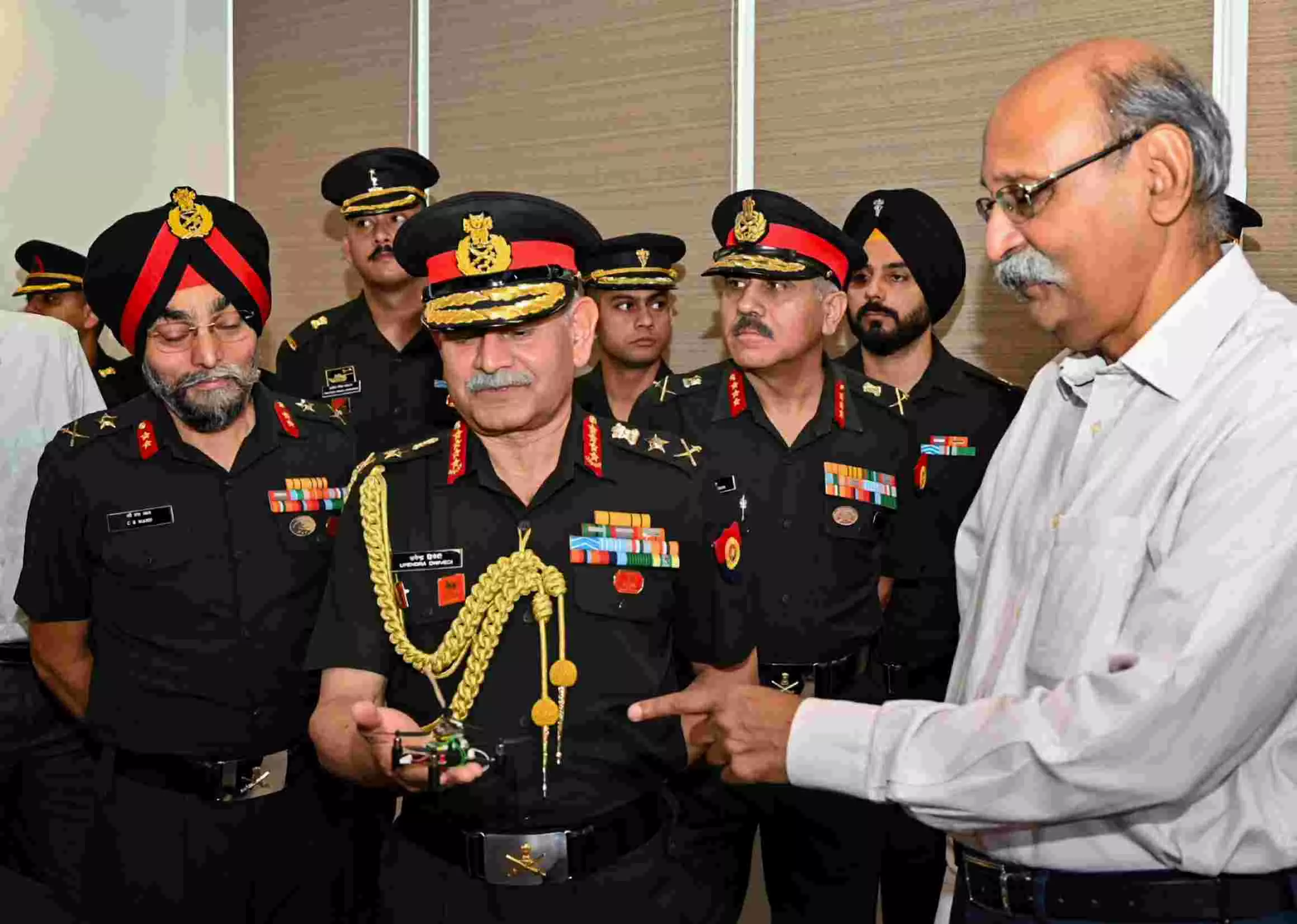
'If you ask a Pakistani...': Indian Army Chief mocks Asif Munir's promotion after Op Sindoor
Gen Dwivedi said how Pakistan tried to control the narrative after Op Sindoor, India had to counter it with its own strategies by using social media, other platforms

Chief of Army Staff General Upendra Dwivedi mocked Pakistan’s attempts to control the narrative post-Operation Sindoor by promoting Pakistan General Asim Munir to the rank of Field Marshal back in May this year.
Slamming Islamabad’s ploy to portray itself as the victor in the recent conflict between the two countries through its narrative management, the Chief of Army Staff (COAS) said that Pakistan promoted General Munir to underscore Pakistan’s victory.
'Victory...in the mind'
Addressing a gathering at IIT Madras, the COAS General Dwivedi said, “Victory is in mind...it's always in the mind…you ask a Pakistani whether you lost or won, he will say my chief has become field marshal so we must have won only."
Asim Munir's promotion was announced by the Pakistan Prime Minister’s office, which had said that the development was because he ensured "the security of the country and defeated the enemy".
Also read: Army conclave focuses on Operation Sindoor and future reforms
"This is how you can influence the population...it is the domestic population, adversaries population and the neutral population... can rising powers be accommodated, that's the question you have to ask and you will get the answer yourself," the Army chief said.
Controlling narrative
Further, he added that the Indian forces countered Pakistan's ‘controlling the narrative’ strategy by using social media and other platforms to convey their message to the masses.
"The strategic messaging was very important, so the first messaging we did 'Justice done: Op Sindoor', that hit the maximum, I am told, in the world today, the number of hits which it received," the Army chief added.
"Claiming victory is an old habit. They did the same in 1971, 1975 and 1999 Kargil War as well," Ministry of External Affairs spokesperson Randhir Jaiswal had said back in May, days after India and Pakistan agreed to a truce.
India's strategic messaging
The Army Chief also highlighted the global impact of India's strategic messaging, noting that press conferences by the two women officers from the Army and Air Force played a key role. He emphasised that a logo was designed by a Lieutenant Colonel and an NCO, underscoring the importance of narrative management in operations.
Also read: DRDO chief hails BrahMos role in Op Sindoor, says it was primary weapon
"When we were going in for these kinds of operations, we were also going for these things (strategic messaging) because the narrative management system is important. It took a lot of time and a lot of effort," he shared.
Game of chess
Gen Dwivedi told IIT-M faculty and students that the intelligence-led operation signalled a doctrinal shift, likening it to chess—where the enemy’s next move was unpredictable.
"We played chess... We did not know what the enemy's next move was going to be, and what we were going to do. This is called greyzone. Greyzone means that we are not going for conventional operations. What we are doing is just short of a conventional operation... We were making the chess moves, and he (enemy) was also making the chess moves," the Army chief remarked.
Free hand
Also, the army chief praised the political will to give the Army a ‘free hand’ during high-level meetings with Prime Minister Narendra Modi and the Defence Minister.
"On (April) 23rd, we all sat down. This is the first time that RM (defence minister Rajnath Singh) said, 'enough is enough'. All three chiefs were very clear that something had to be done. The free hand was given, 'you decide what is to be done.' That is the kind of confidence, political direction and political clarity we saw for the first time," Dwivedi said at the event.
Also read: 5 Pakistani fighter jets, 1 large aircraft shot down during Op Sindoor: IAF chief
Operation Sindoor, launched on May 7 in response to the Pahalgam terrorist attack that claimed 26 civilian lives in Jammu and Kashmir, was guided by strong political will and clear strategic direction from the government, the Army Chief asserted.

